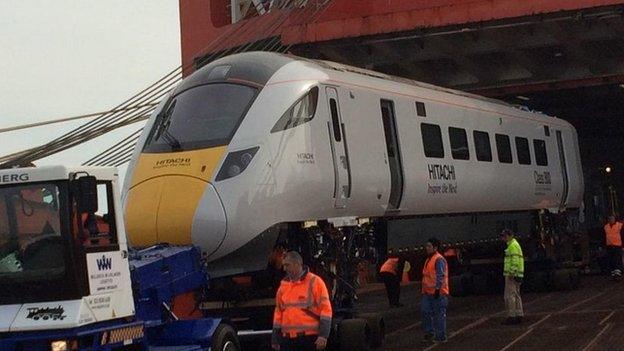First Great Western rail strike 'on' as talks fail, RMT says
- Published
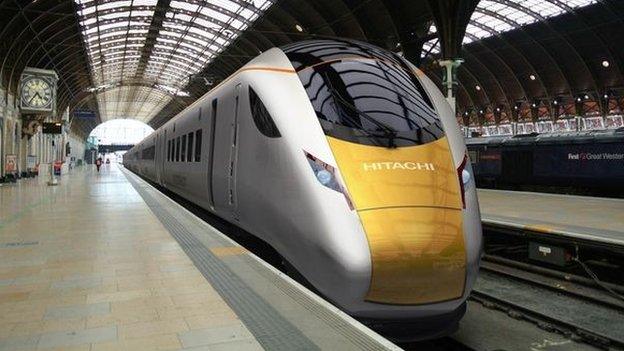
First Great Western's new high-speed trains will replace a fleet of trains from the 1970s
Tens of thousands of commuters face disruption from a 48-hour rail strike, after last-minute talks between First Great Western and the RMT union failed.
High-speed services between London, the West of England and Wales are likely to be halved as industrial action, which begins at 1830 BST, bites.
Overnight services between London and Penzance have been cancelled.
The dispute Tis over concerns guards and buffet cars will be disposed of on new Hitachi Inter City Express trains..
RMT members have been instructed not to "book in" for shifts from 1830 BST on Wednesday.
Trains cancelled
First Great Western expects to continue running services into Wednesday evening but its overnight trains have been cancelled.
The company said the main impact would be felt by commuters on Thursday morning. It will operate a revised timetable, external but has warned that trains will be busy.
Services between London, the West and South Wales are expected to be reduced by more than half and some suburban rail services will be cancelled, external.

Strike timetable changes
Bristol Temple Meads to London services reduced to one an hour, and north to Gloucester every two hours
London to Cardiff services reduced to one an hour with services extending to Swansea only during peak travel times
Penzance to Plymouth services to run every two hours but many local services have been cancelled
Most services from the Thames Valley into London Paddington are expected to run as normal. Passengers travelling west will face disruption.

The industrial action is also likely to affect fans heading to the first Ashes test match in Cardiff.
Speaking after the talks on Wednesday, Mick Cash, RMT general secretary, said the 48-hour strike "remains on".
"The company still feel that the configuration of the new super express trains is out of their control and that it would be in their best interests to have 'driver-only' operations and to remove the buffet cars.
"That position is totally unacceptable and the union is clear that the design of the new fleet of trains is a matter for First Group and that there is still time to modify the rolling stock," Mr Cash said.
A FGW spokesman said: "Progress has been made, sadly not enough progress for the RMT to be able to cancel their strike at short notice."
The first Hitachi trains will run on the Great Western main line from 2017 and the East Coast main line from 2018.
The new trains are being introduced under the Intercity Express Programme (IEP), external on routes between London Paddington and Oxford, Bristol and South Wales.
- Published6 July 2015
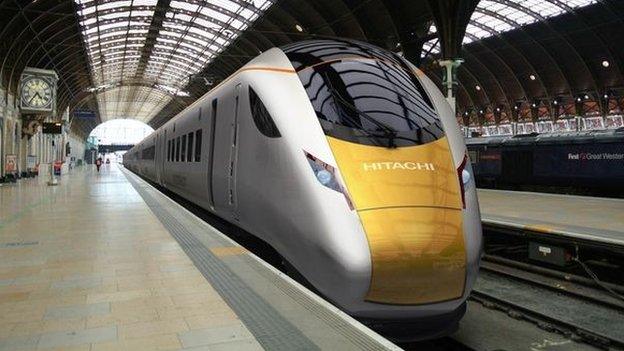
- Published30 June 2015
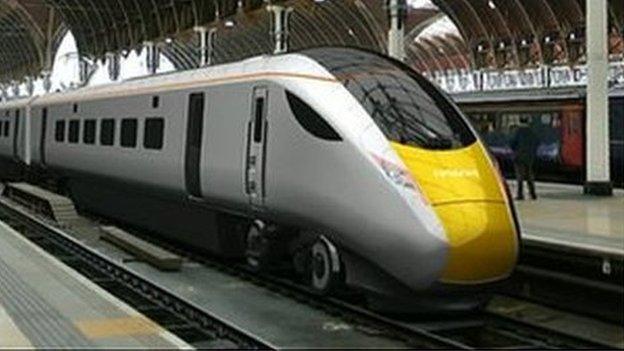
- Published8 April 2015

- Published23 March 2015
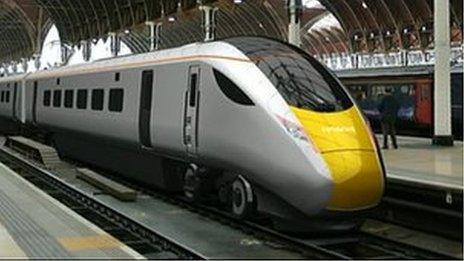
- Published12 March 2015
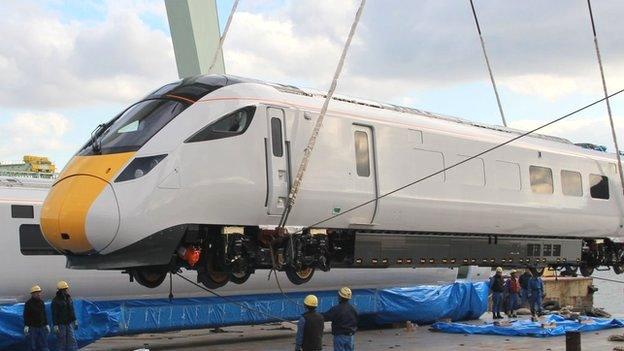
- Published12 March 2015
